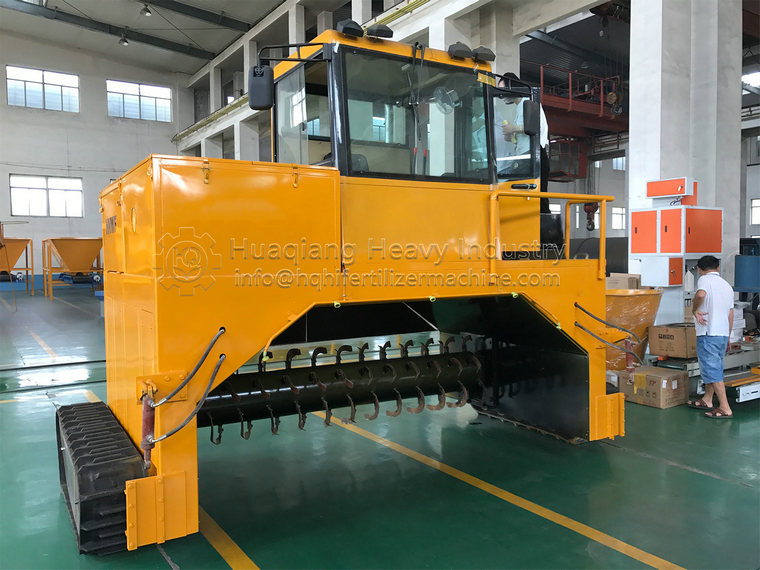Product advantages of a walking open-air flatbed moving crawler stacker
Animal manure is a high-quality organic fertilizer, which can be applied to crops to produce high-quality and efficient fertilizers. It is beneficial for improving soil and overcoming the salt alkali damage caused by long-term use of chemical fertilizers. Suitable for crops such as wheat, rice, peanuts, and fruit trees, it improves crop quality, improves fruit quality, and is beneficial to human health. It is an excellent fertilizer for the cultivation of pollution-free green food.
However, livestock and poultry manure contains a large amount of harmful microorganisms and bacteria, which must not be directly applied and must undergo deep high-temperature fermentation. The main purposes of certain fermentation are twofold: one is to kill harmful bacteria, and the other is to organically transform underdigested substances to increase the actual organic matter content.
The walking type open-air flatbed pushing crawler stacker is easy to drive and effortless, and the transfer of factory land is more convenient and efficient, completely solving the problem. The wheeled stacker cannot turn around 180 degrees in place, and there will be no tire slip or crawling phenomenon caused by the wheel stacker when it comes to materials with high moisture content. I will never let customers change tires in the fermentation pile for a lifetime, and the price is only a quarter of that of a hydraulic track tipping machine.
Advantages of the walking open-air flatbed moving crawler stacker:
1. The operation is easier, saving space, labor, diesel, shortening working hours, and advancing the fermentation cycle.
2. Equipped with a front hydraulic push plate, there is no need for manual and time-consuming stacking.
3. Hydraulic lifting of the drum, with optional air conditioning in the cab.
4. Using a control cabinet to control the machine, both manual and automatic control are available.
5. Covering a small area of land to meet the harmless treatment of organic waste.
6. Advanced technology, compact structure, low energy consumption, and stable product quality.
.jpg)


.jpg)


.jpg)
